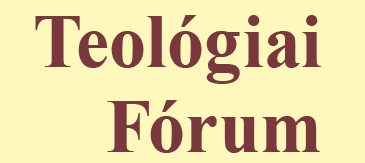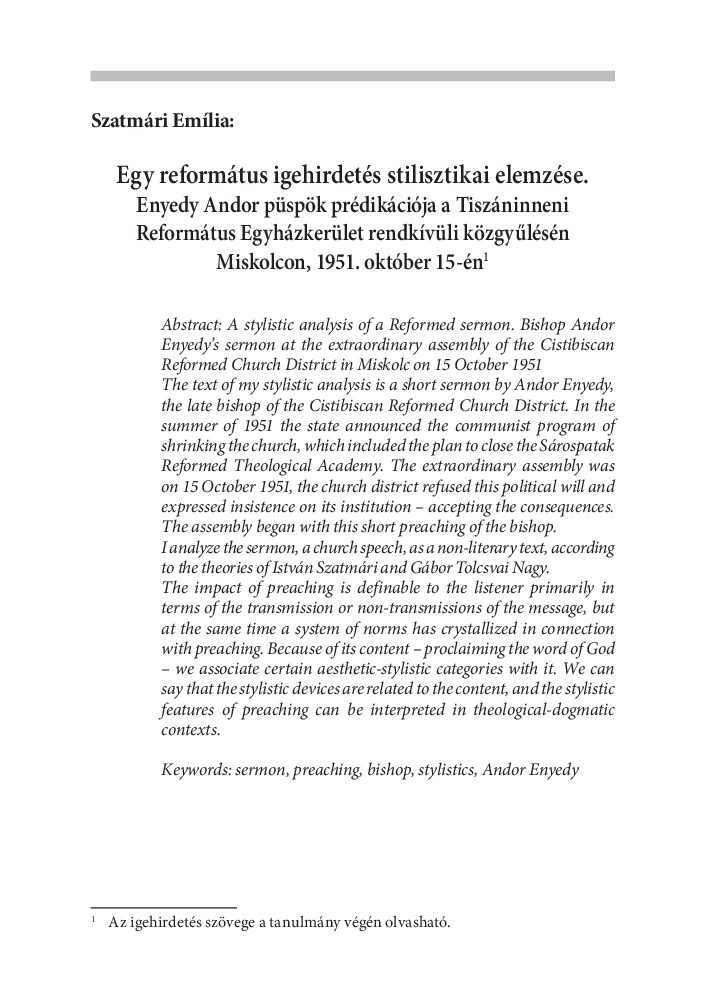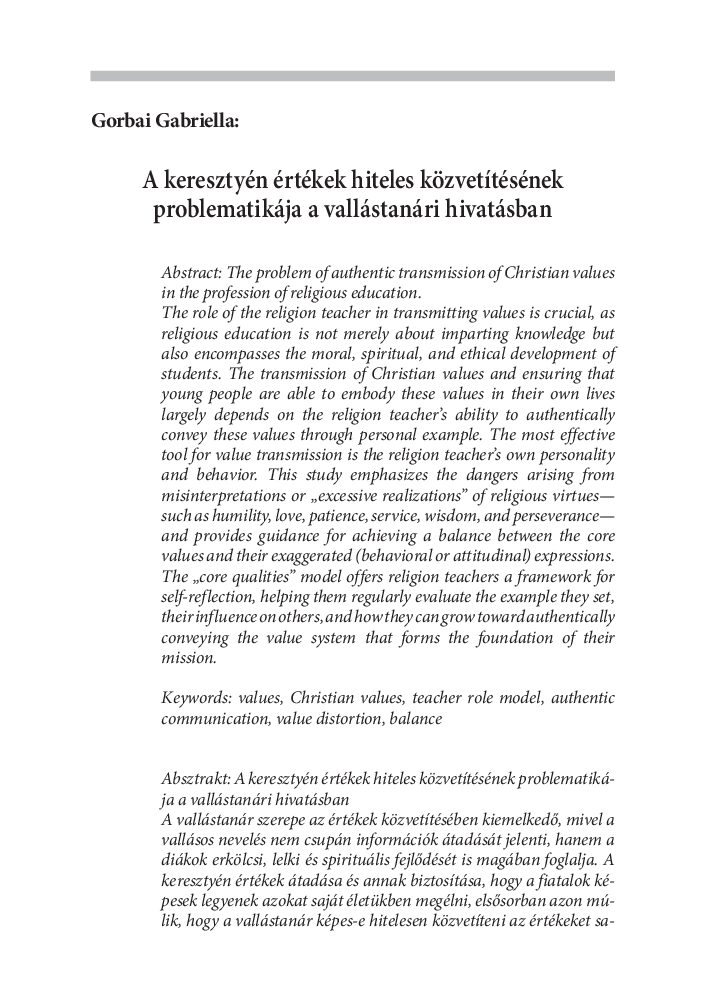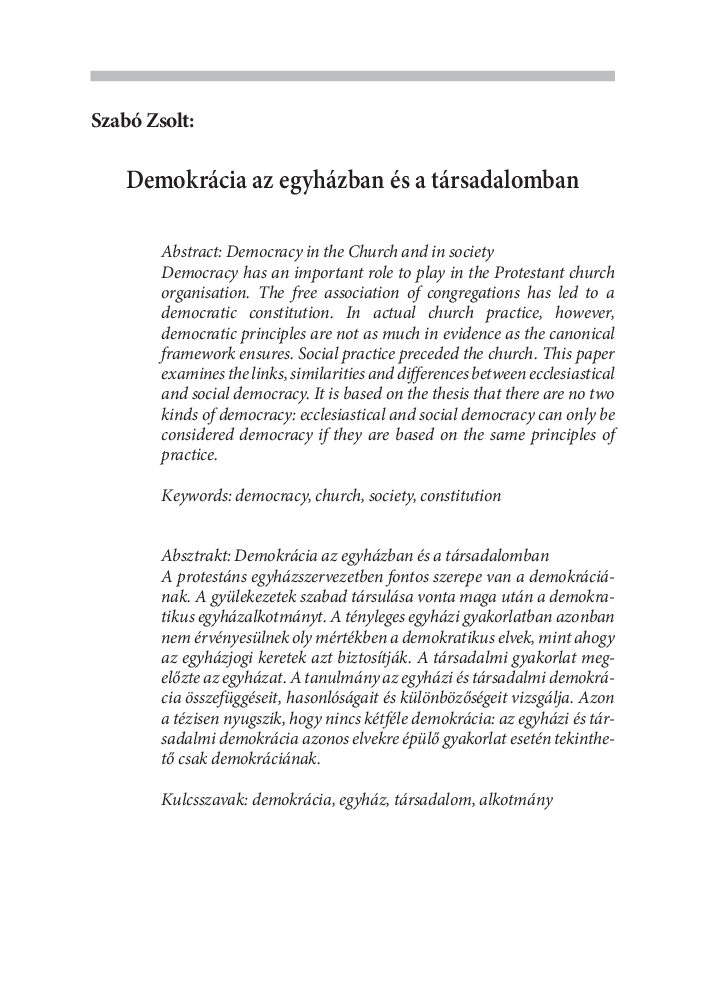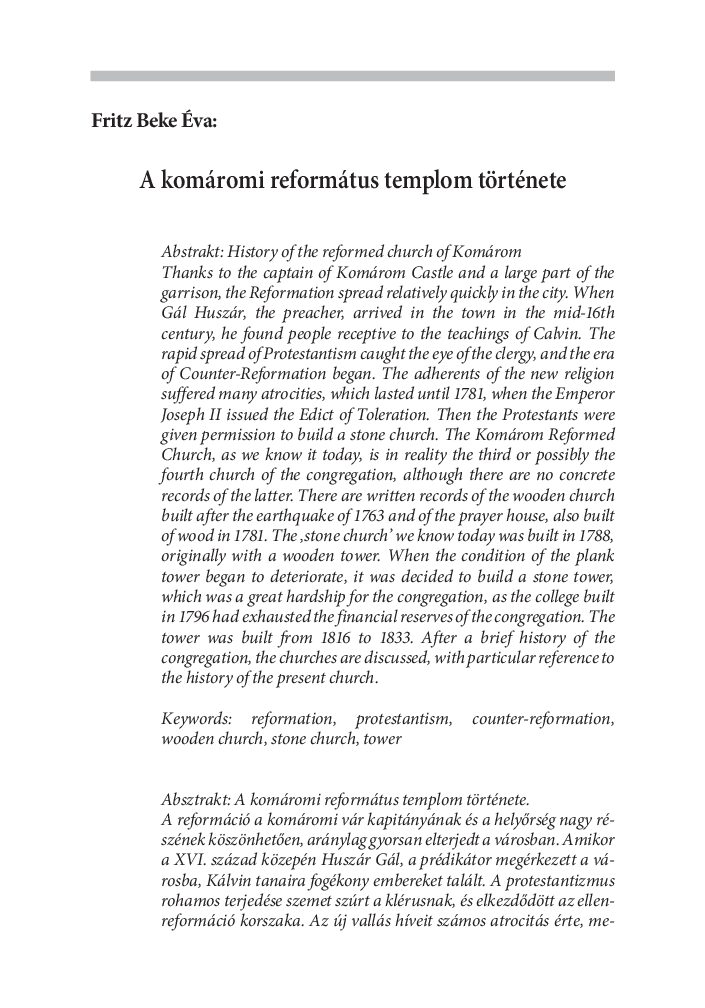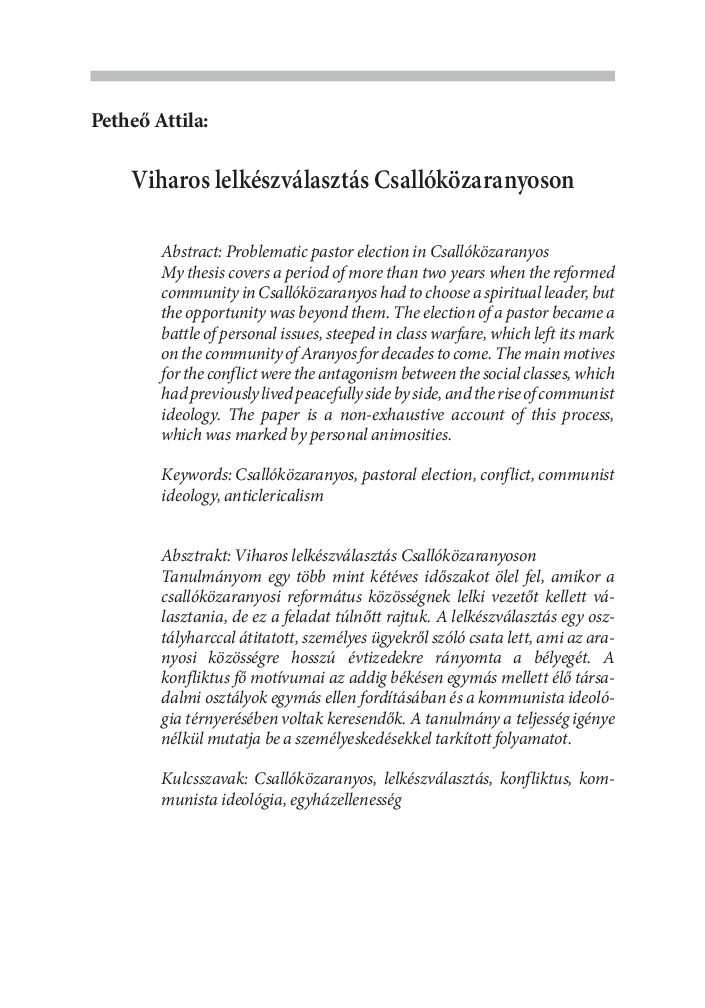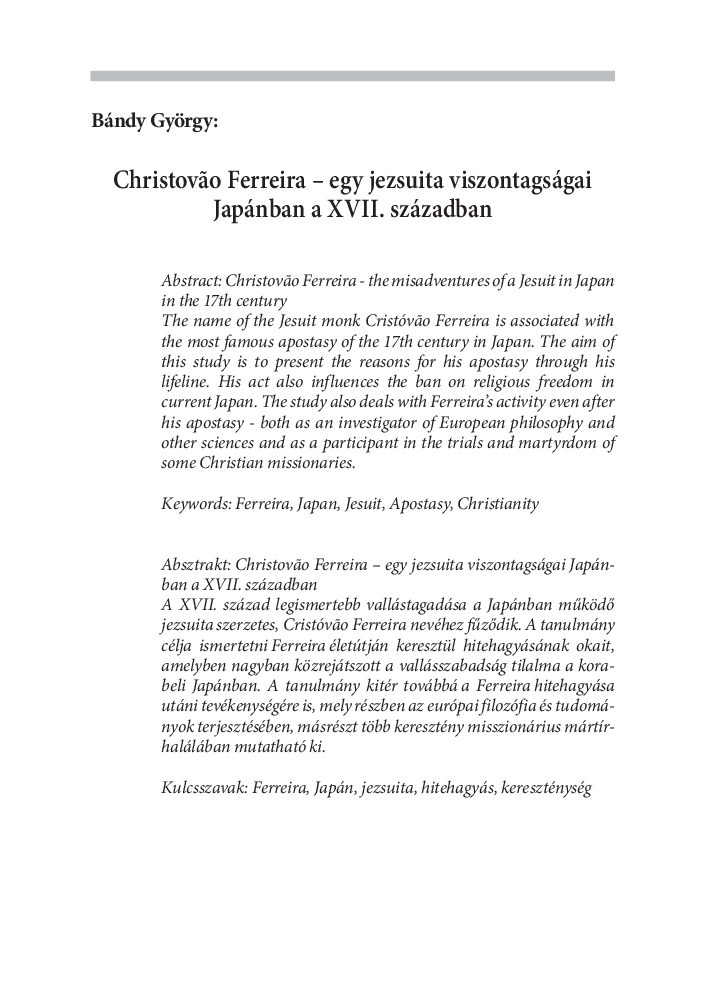Flogny Károly: A fogyatékkal élő ember egy posztmodern társadalomban és annak etikai vonatkozásai
The disabled person in a postmodern society and its ethical implications
The study focuses on presenting the situation of a postmodern country, which is an economically significant source of reformist thought, in relation to persons with disabilities. On the other hand, through this description of the situation, it identifies some potential crises in the lives of people with disabilities and their families that can be applied as ethical principles in the process of pastoral care. The author points out, among other things, that in an economically significant country, which is considered a resource for Reformed thought, where even the material conditions are given alongside the spiritual heritage, the inclusion of disabled people in society is not taking place. As the author believes that this correlation with the postmodern tendency can also be found in Hungary, he adds some Hungarian realities to prepare the ground for a more effective and personalised pastoral care.
Keywords: people with disabilities, attitudes of postmodern society, employment, inclusion, segregation, crisis management
